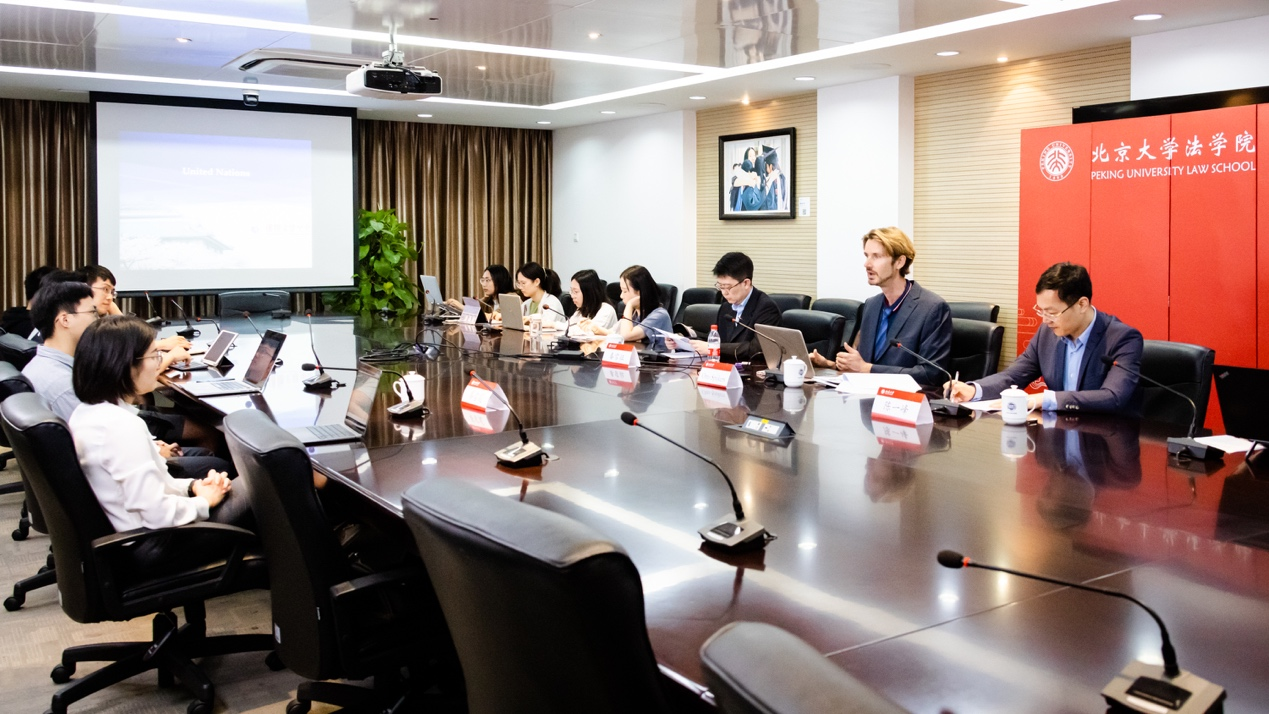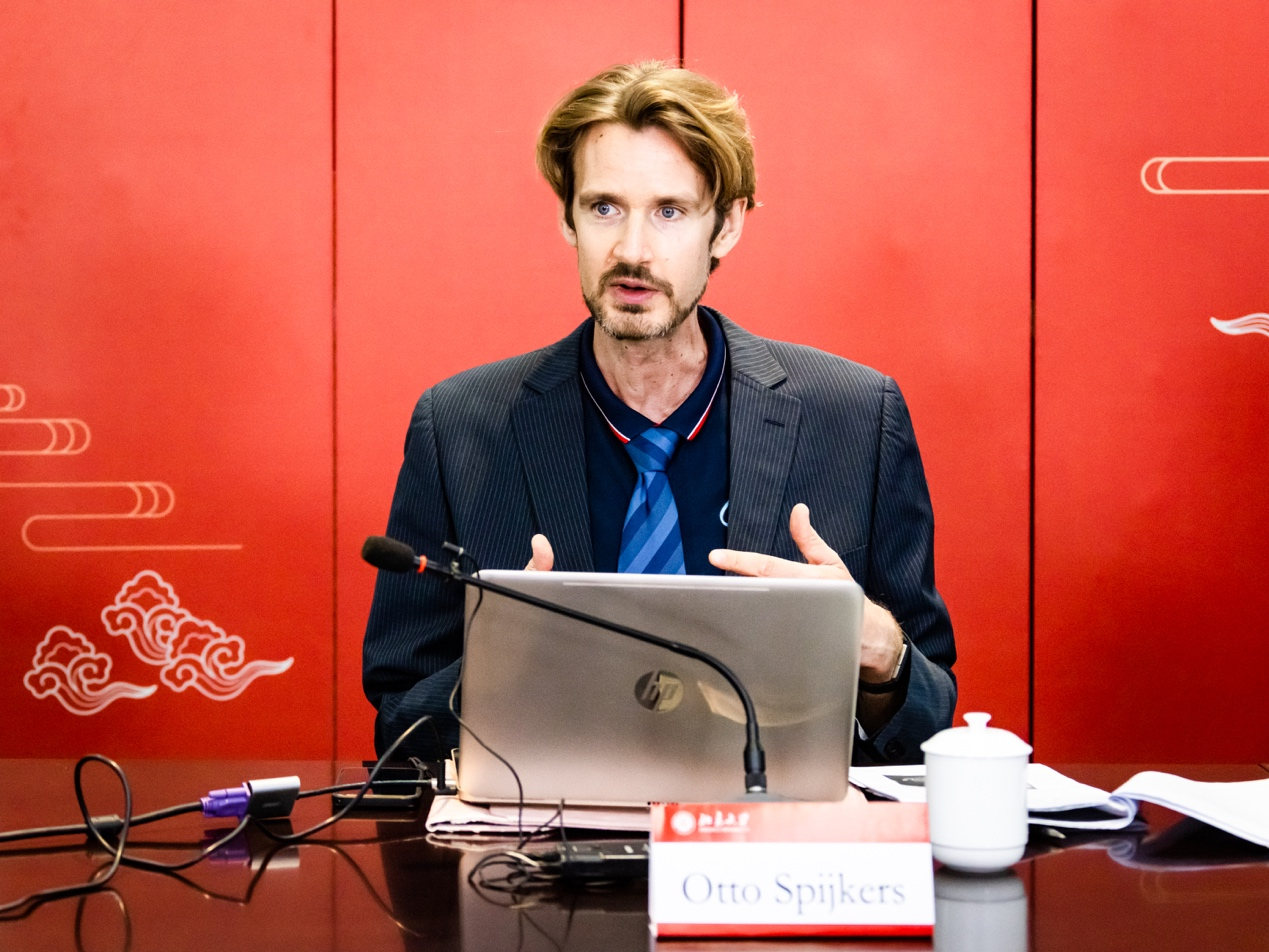"The Belt and Road Initiative and International Governance Series Lecture: the Construction of Global Health Order: the Foundation of Value Orientation and Regulation" Was Successfully Held.
Date:2021-09-30
On September 27, 2021, Peking University Law School and the Department of International Cooperation of Peking University jointly held a lecture on "construction of global health order: value orientation and normative basis", which is one of the“The Belt and Road Initiative and international governance series lecture". The lecture was presented by Otto Spijkers, Professor of Wuhan University China Institute of Boundary and Ocean Studies (CIBOS) and the Institute of Environmental Law. The lecture was presided over by Liao Xuexia, Assistant Professor of PKULS. Prof. Qin Xuezheng, Deputy Dean of School of Economics of Peking University, and A.P. Chen Yifeng, Assistant Dean of PKULS, served as interlocutors. The lecture was attended by many students from inside and outside the school and achieved complete success.

The lecture started from the meaning of global values and the contribution of the United Nations to global values. By analyzing Charter of the United Nations and the epidemic situation, we can find that the United Nations is in the core position in the construction of global values. In the context of the outbreak of the epidemic, the value of international solidarity has attracted the attention of the state and the international community. The tradition of the United Nations in dealing with issues of common international concern has also promoted its positive significance in international cooperation. In reality, we can not only see many problems of inequality, but also see the role of international solidarity.

Prof. Qin Xuezheng pointed out COVID-19 changed people's views on global health issues. He analyzed the shortage of international cooperation in the distribution of vaccines from an economic perspective.
A.P. Chen Yifeng reflected on the current global health governance structure from a critical perspective. He believed that global health governance should pay more attention to the public health needs of developing countries and realize the cooperation, equality and sharing of global public health.
In the question session, the participants had in-depth exchanges with the audience on the construction of international conventions related to infectious diseases, the advantages and disadvantages of Europe's human rights approach in dealing with epidemic situations, and the protection of the interests of developing countries in the construction of health order.
Translated by : Wei Wan
Edited by: Li Yixiao



